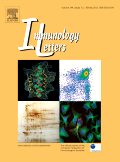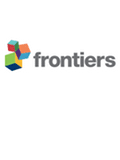
IMMUNOLOGY LETTERS
Scope & Guideline
Connecting Researchers to the Heart of Immunology
Introduction
Aims and Scopes
- Immunological Mechanisms:
The journal consistently publishes research on the fundamental mechanisms of the immune system, including cellular interactions, signaling pathways, and the roles of various immune cells like T cells, B cells, and macrophages. - Autoimmunity and Inflammation:
A significant portion of the research addresses autoimmune diseases and inflammatory responses, elucidating the underlying pathophysiology and potential therapeutic interventions. - Cancer Immunology:
Research related to cancer immunology is a prominent focus, exploring immune evasion by tumors, the role of immune checkpoints, and novel immunotherapies. - Infectious Diseases:
The journal includes studies on immune responses to infectious agents, including viral, bacterial, and parasitic pathogens, highlighting both basic and translational research. - Therapeutic Advances:
A unique contribution of the journal is its emphasis on therapeutic advances, discussing novel immunotherapeutic strategies, vaccine development, and targeted therapies in various disease contexts.
Trending and Emerging
- Immune Cell Plasticity:
There is a growing interest in the plasticity of immune cells, particularly T cells and macrophages, as researchers explore how these cells adapt their functions in various disease states. - Microbiome and Immunity:
The role of the microbiome in modulating immune responses is an emerging theme, with studies increasingly focusing on gut microbiota's impact on health and disease, including autoimmune disorders. - Targeted Immunotherapies:
Research on targeted immunotherapies, particularly in cancer and chronic inflammatory diseases, is on the rise, highlighting innovative approaches to manipulate the immune response for therapeutic benefit. - Long COVID and Immunity:
The exploration of immune responses in the context of Long COVID is gaining traction, reflecting the ongoing impact of the COVID-19 pandemic on immunological research priorities. - Nanotechnology in Immunotherapy:
Emerging studies are focusing on the application of nanotechnology in enhancing immunotherapy, which presents novel strategies for targeted drug delivery and improved therapeutic efficacy.
Declining or Waning
- Basic Immunology Studies:
There appears to be a waning interest in purely basic immunology studies without direct clinical or therapeutic implications, as the journal increasingly favors research with translational relevance. - Older Vaccine Technologies:
Research on traditional vaccine technologies has declined, likely giving way to emerging studies on mRNA and vector-based vaccines, reflecting the rapid evolution in vaccine development. - Epidemiological Studies:
Epidemiological studies related to immune responses have become less frequent, possibly overshadowed by more mechanistic or therapeutic-focused research.
Similar Journals

HUMAN IMMUNOLOGY
Elevating Understanding of Immune MechanismsHUMAN IMMUNOLOGY, published by Elsevier Science Inc, serves as a critical platform for disseminating research in the fields of immunology and allergy, as well as various aspects of miscellaneous medicine since its inception in 1980. With an ISSN of 0198-8859 and E-ISSN 1879-1166, this journal is pivotal for researchers and practitioners looking to advance their understanding of human immune responses and related conditions. The journal currently holds a respectable position within its field, as highlighted by its 2023 Scopus ranks—#114/233 in Immunology and Allergy and #132/236 in Immunology and Microbiology. Moreover, it maintains a Q2 quartile ranking in both Immunology and Allergy and miscellaneous Medicine, underscoring its influence and reach within the scientific community. Although it does not currently offer Open Access options, HUMAN IMMUNOLOGY remains dedicated to providing valuable insights and fostering academic discourse within its discipline, characterized by a rigorous peer-review process and a focus on innovative research trajectories.

CLINICAL AND EXPERIMENTAL IMMUNOLOGY
Unveiling Breakthroughs in Experimental ImmunologyClinical and Experimental Immunology, published by Oxford University Press, is a premier journal that has been a cornerstone in the field of immunology since its inception in 1966. With an ISSN of 0009-9104 and an E-ISSN of 1365-2249, this journal holds a significant position in academic research, currently ranking in the Q2 category for both Immunology and Allergy (2023). Its impactful contributions are reflected in its Scopus rankings, where it stands at Rank #63 out of 233 in Immunology and Allergy, placing it in the 73rd percentile, and Rank #73 out of 236 in Immunology and Microbiology. Researchers, healthcare professionals, and students will find this journal an invaluable resource for cutting-edge studies, reviews, and clinical advancements in the ever-evolving domain of immunology. While the publication does not offer open-access options, it remains a pivotal platform for disseminating knowledge that impacts both clinical practice and experimental research.

INTERNATIONAL IMMUNOLOGY
Pioneering Research at the Intersection of Immunology and Medicine.INTERNATIONAL IMMUNOLOGY, published by OXFORD UNIV PRESS, stands out as a premier journal in the field of immunology, providing a vital platform for disseminating groundbreaking research and innovative developments within the discipline. With an impressive Q1 ranking in Immunology and Allergy, as well as in Medicine (miscellaneous), it consistently showcases high-impact studies that contribute to the advancement of immunological knowledge. The journal spans over three decades, from its inception in 1989 to its ongoing contributions as of 2024, thus solidifying its reputation in the scientific community. Researchers, professionals, and students will find valuable articles that delve into the complexities of immune responses, therapeutic interventions, and emerging immunological paradigms, ensuring INTERNATIONAL IMMUNOLOGY remains at the forefront of knowledge in the life sciences.

CRITICAL REVIEWS IN IMMUNOLOGY
Advancing the Frontiers of Immune ScienceCRITICAL REVIEWS IN IMMUNOLOGY, published by BEGELL HOUSE INC, is an essential journal in the field of immunology that has been contributing to the scientific discourse since 1980. With its ISSN 1040-8401 and E-ISSN 2162-6472, this journal provides a platform for critical analysis and comprehensive reviews that deepen understanding of immune responses and their implications in health and disease. Although currently categorized in the Q4 quartile for Immunology and Q3 for Immunology and Allergy, the journal's quality research and scholarly contributions are crucial for advancing knowledge within its fields—encompassing various aspects of innate and adaptive immunity. Researchers and professionals in immunology will find invaluable insights, aiding them in their quest for innovation and excellence, as the journal aims to foster interdisciplinary collaboration. While it does not operate on an open-access model, CRITICAL REVIEWS IN IMMUNOLOGY remains a significant resource for those dedicated to pushing the boundaries of immunology, with annual publications expected to last well into 2024 and beyond.

JOURNAL OF IMMUNOLOGY
Championing Cutting-edge Immunological StudiesWelcome to the JOURNAL OF IMMUNOLOGY, a prestigious publication associated with the American Association of Immunologists and dedicated to advancing the field of immunology. With a rich history dating back to 1945, this journal is renowned for its high-impact research, evident in its notable 2023 Q1 rankings in both Immunology and Allergy, as well as its strong positions in Scopus rankings—Rank #68 in Immunology and Allergy and Rank #79 in Immunology and Microbiology. Although it operates on a subscription basis, its commitment to publishing cutting-edge studies ensures that it remains a vital resource for scientists, healthcare professionals, and students alike. As the journal continues to pave the way for innovative research and breakthroughs in immunological science, it facilitates a platform for dialogue and discovery among researchers and practitioners across the globe.

PARASITE IMMUNOLOGY
Innovative Insights into Immunology and Parasitology.PARASITE IMMUNOLOGY, published by Wiley, is a leading journal in the field of immunology and parasitology, with an ISSN of 0141-9838 and E-ISSN of 1365-3024. Since its inception in 1979, it has played a pivotal role in advancing our understanding of host-parasite interactions, immunological responses to parasitic infections, and the mechanisms of immunological resistance. The journal is adeptly positioned within the academic community, currently holding a prestigious Q2 ranking in Parasitology and a Q3 ranking in Immunology for 2023, indicating its significant influence and relevance. Its comprehensive scope attracts a diverse readership, contributing to the discourse surrounding novel therapeutic approaches and emerging challenges in parasitic diseases. With a consistent convergence of research until 2024, PARASITE IMMUNOLOGY is an essential resource for researchers, professionals, and students seeking to deepen their knowledge and foster collaboration in these dynamic fields. Although it is not an open-access journal, the insights shared within its pages are invaluable for shaping future research trajectories.

Cellular & Molecular Immunology
Unraveling the Mysteries of ImmunityCellular & Molecular Immunology is a prestigious peer-reviewed journal published by the CHIN SOCIETY IMMUNOLOGY. As a leading journal in the fields of immunology and infectious diseases, it proudly holds a Q1 designation across multiple categories, including Immunology, Allergy, and Medicine (Miscellaneous), reflecting its commitment to excellence and impactful research. With an ISSN of 1672-7681 and an E-ISSN of 2042-0226, the journal has been essential reading since its inception in 2004, continuously gathering insights from cutting-edge studies. It ranks impressively within Scopus, with positions in the 7th, 8th, and 9th percentile in relevant categories, establishing it as a cornerstone for researchers, clinicians, and students alike. The journal offers an extensive range of original research articles, reviews, and clinical studies, ensuring that readers stay at the forefront of immunological discovery. Whether you are interested in basic immunology, infectious diseases, or evolving therapies, Cellular & Molecular Immunology serves as an invaluable resource for advancing your knowledge and engagement in this dynamic field.

Frontiers in Immunology
Fostering Collaboration in the World of Immunological DiscoveryFrontiers in Immunology is a leading open-access journal published by FRONTIERS MEDIA SA since 2010, dedicated to advancing knowledge in the field of immunology. With an impressive Q1 ranking in both Immunology and Allergy as of 2023, this journal exemplifies excellence in research dissemination, positioning itself among the top 22% of relevant literature in the discipline. The journal, based in Switzerland, emphasizes its commitment to open science by ensuring all published research is freely accessible, fostering collaboration and innovation among researchers, professionals, and students alike. With substantial visibility demonstrated by its ranks within the Scopus database—ranked #52 out of 233 in Immunology and Allergy, and #58 out of 236 in Immunology and Microbiology—Frontiers in Immunology serves as a vital platform for cutting-edge research. Researchers are invited to contribute original investigations and reviews that expand the understanding of immune mechanisms, therapeutic advancements, and clinical applications, making it a cornerstone for those looking to push the boundaries of immunological science.

Innate Immunity
Advancing the Frontiers of Immune ResearchInnate Immunity, published by SAGE Publications Ltd, serves as a vital platform for disseminating cutting-edge research in the fields of immunology, microbiology, cell biology, and infectious diseases. With an ISSN of 1753-4259 and an E-ISSN of 1753-4267, this journal has been a prominent contributor to the academic community since its inception in 1996, focusing on the innate immune response and its implications for health and disease. Holding a respectable impact factor and categorized in the Q2 and Q3 quartiles across various relevant domains, Innate Immunity ranks competitively in major databases, including Scopus, where it appears in the top 75th percentile for Infectious Diseases. Researchers and professionals are encouraged to explore its wealth of articles that are pivotal in bridging fundamental immunology with clinical applications, fostering a deeper understanding of immune mechanisms vital for combating human diseases.

Immunological Medicine
Empowering Innovation in Immunological MedicineImmunological Medicine, published by Taylor & Francis Ltd, is an esteemed open-access journal that has made significant strides in the field of immunology since its establishment in 2018. With an E-ISSN of 2578-5826, the journal has quickly gained recognition for its contribution to advancing immunological research, evidenced by its impressive ranking in the Q2 quartile for both immunology and allergy. Positioned in the United Kingdom, it offers a platform for publishing high-quality original research, reviews, and case studies that delve into the complex interactions of the immune system and its implications for human health. The journal serves as a vital resource for researchers, professionals, and students engaged in the burgeoning fields of immunology, providing open access to a wide audience and fostering collaboration and innovation. With a current Scopus ranking of #81 out of 233 in Immunology and Allergy and #97 out of 236 in Immunology and Microbiology, the journal aims to enhance the visibility and impact of cutting-edge research by bridging the gap between academia and clinical practice.